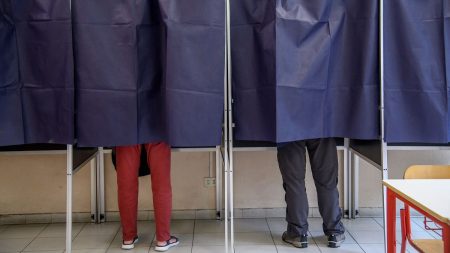The streets of Tbilisi, Georgia, have been ablaze with protests for eleven consecutive days, a testament to the Georgian people’s unwavering commitment to their European Union membership aspirations. Tens of thousands of citizens have taken to the streets to voice their discontent with the ruling Georgian Dream party’s decision to suspend EU accession talks for four years, a move that has ignited a firestorm of public anger and frustration. These protests, centered around the parliament building, have been met with a heavy-handed response from Georgian authorities, with police deploying water cannons, tear gas, and riot control units to disperse the crowds. Reports of police brutality, including the use of batons against protesters, have further inflamed tensions and fueled the public’s determination to resist what they perceive as an unjust and undemocratic maneuver by the government.
The protests are rooted in the disputed parliamentary election held on October 26th, which saw the Georgian Dream party retain control. The election, widely perceived as a referendum on Georgia’s EU ambitions, was marred by accusations of rigging and undue influence from neighboring Russia, aimed at keeping the allegedly “Moscow-friendly” Georgian Dream party in power. The opposition’s claims of electoral manipulation sparked initial protests, but the Georgian Dream’s subsequent decision to postpone EU accession talks until at least 2028 dramatically escalated the situation, broadening the scope of the demonstrations and intensifying public outrage. This decision, ostensibly a response to a European Parliament resolution criticizing the election as neither free nor fair, has been interpreted by many Georgians as a betrayal of their European aspirations and a blatant disregard for democratic principles.
Adding another layer of complexity to the unfolding crisis is the increasing violence directed towards journalists covering the protests. A separate demonstration was organized specifically to condemn the attacks on media personnel, with hundreds of journalists marching through Tbilisi’s central Rustaveli Avenue, holding posters of injured colleagues. Journalists have reported being targeted, assaulted, and intimidated while attempting to document the events. One particularly disturbing incident involved a reporter and her colleague from TV Pirveli being attacked by a mob after filming men, dressed in black, who appeared to be instigating violence against protesters. The attack resulted in injuries, stolen equipment, and underscores the growing threat to press freedom in the country.
The European Parliament resolution, which triggered the Georgian Dream party’s controversial decision, highlighted Georgia’s continued democratic backsliding, attributing responsibility squarely to the ruling party. This backsliding stands in stark contrast to the jubilant scenes that unfolded in Tbilisi just months prior, when Georgia was granted EU Candidate Status in December 2022. The granting of candidate status was a momentous occasion, celebrated widely by Georgians who saw it as a validation of their commitment to European values and a significant step towards realizing their long-held dream of joining the European Union. The current protests, therefore, represent not only a rejection of the Georgian Dream party’s actions but also a desperate attempt to reclaim the momentum towards EU integration that many feel has been unjustly snatched away.
The protesters’ demands are clear: they seek a reversal of the decision to suspend EU accession talks and a commitment from the government to uphold democratic principles and respect the will of the people. They see their EU aspirations as inextricably linked to their desire for a more democratic and transparent government, free from external interference. The protests underscore the deep-seated desire among Georgians for closer ties with Europe and a rejection of any perceived alignment with Russia. The ongoing demonstrations represent a critical juncture for Georgia, with the future of its EU membership bid and the trajectory of its democracy hanging in the balance.
The protests, fueled by a mix of anger, frustration, and hope, show no signs of abating. The protesters have vowed to continue their demonstrations until their demands are met, signaling a protracted and potentially volatile standoff with the government. The international community is watching closely, with concerns mounting about the escalating tensions and the potential for further violence. The situation in Georgia underscores the fragility of democratic progress and the importance of upholding the rule of law and respecting the fundamental rights of citizens, including the right to peaceful assembly and freedom of the press. The outcome of this struggle will have profound implications not only for Georgia’s future but also for the broader geopolitical landscape of the region.










